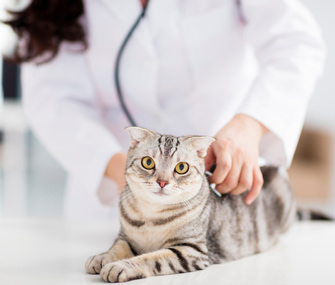
Cat Veterinarian – Select And Evaluate Your Veterinarian
Selecting a cat veterinarian deserves the same consideration as choosing your own family physician. Ask your neighbors, friends, local cat breeders, and groomers, or even your own general practitioner for a recommendation.
Contents
- 1 Important Factor In The Selection Of Cat Veterinarian
- 1.0.0.0.1 1. Is the office clean and well equipped?
- 1.0.0.0.2 2. Is the doctor on an appointment system?
- 1.0.0.0.3 3. Can you take a tour of the clinic at a convenient time for the doctor or the staff?
- 1.0.0.0.4 4. Does the cat veterinarian take an appropriate medical history?
- 1.0.0.0.5 5. Does your cat veterinarian do a complete physical examination?
- 1.0.0.0.6 6. Does your cat veterinarian encourage you to ask questions?
- 1.0.0.0.7 7. Is your veterinarian gentle with your pet?
- 1.0.0.0.8 8. Does your veterinarian have any pets of his or her own?
- 1.0.0.0.9 9. Is your veterinarian careful with a biting or scratching pet?
- 1.0.0.0.10 10. If you are a new pet owner, does the veterinarian give you literature on good health maintenance and training, and does he or she explain it to you?
- 1.0.0.0.11 11. Will your doctor refer you to a veterinary specialist if needed?A good veterinarian knows his or her limitations.
- 1.0.0.0.12 12. Is your veterinarian a member of an emergency group, or is there another doctor on call when your veterinarian is not available?
- 1.0.0.0.13 13. Are all rates and fees explained to you?
- 1.0.0.0.14 14. Does your cat veterinarian use laboratory tests and radiographs (X-rays) discriminate, to confirm a diagnosis?
- 1.0.0.0.15 15. Does your veterinarian hospitalize only for serious problems?
- 1.0.0.0.16 16. Is your cat veterinarian’s hospital well equipped?
Important Factor In The Selection Of Cat Veterinarian
The most important factor in the selection is your confidence in the veterinarian. To help you select and evaluate your veterinarian, consider the following points:
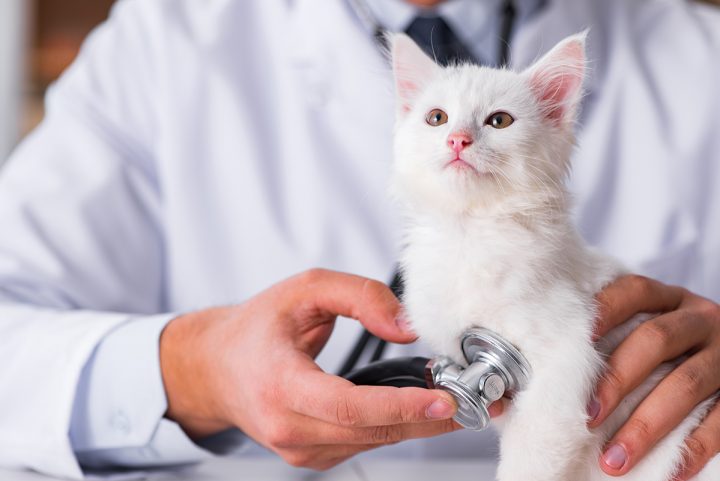
1. Is the office clean and well equipped?
2. Is the doctor on an appointment system?
This reduces your waiting time considerably, makes the reception area less crowded, and makes your doctor less rushed.
3. Can you take a tour of the clinic at a convenient time for the doctor or the staff?
Most veterinarians will be proud to show you their facilities.
4. Does the cat veterinarian take an appropriate medical history?
All veterinarians have been trained to organize background information in a logical, concise, and accurate way. This is called “taking the medical history,” and it is extremely important to good veterinary care. History is divided into the major problem(s), the present illness, a review of the systems, and the medical history. Emergencies (such as injuries),simple problems, and well-pet exams (vaccinations) may not require many questions by the doctor.
Before your visit, write down all the problems that your cat is having so that you won’t leave out an important detail. The major medical problem should be expressed as the title of your story:
‘Ralph has been urinating more than usual and drinking a lot more water”
Identify each problem without unnecessary details and let the doctor pick up from there.
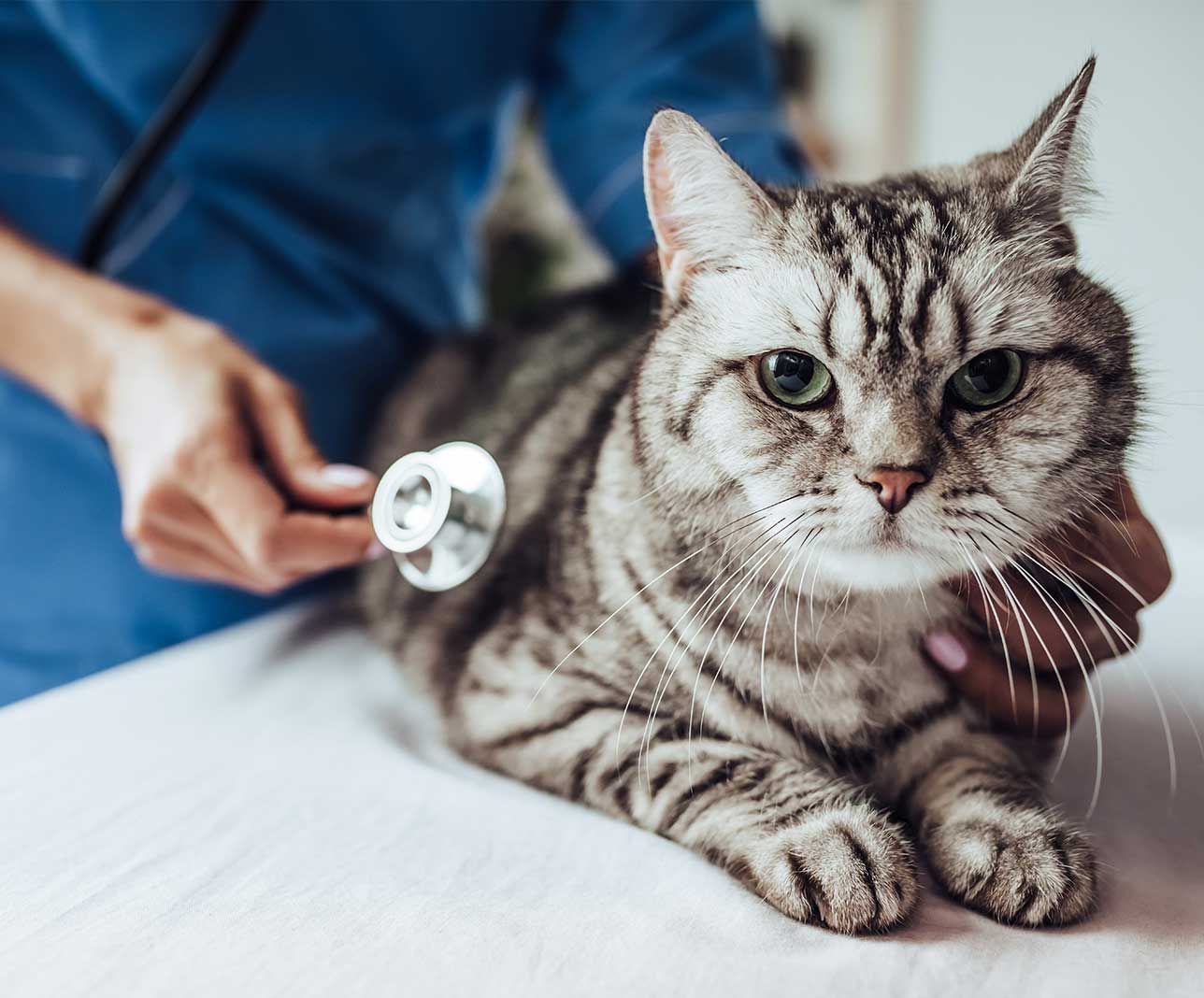
Your veterinarian will want to establish the progression of the current illness.This means that you must observe your pet very carefully at home so that you can provide all the relevant information. Again, organize your thoughts so that you can provide all the important facts:
“Three days ago, Ralph began drinking a lot more water. In fact, I had to fill a five-ounce bowl three times during the day. Now she [yes, / do see female pets with ‘male” names] is drinking six bowls of water daily.Her appetite is unsatisfied, though, and site keeps begging for food. She asks to go out to urinate every half hour, even during the night. She also began wetting on the kitchen floor. I didn’t see any blood in the urine. Ito ok her temperature when all this started, and it was normal.”
Other information that may be useful is any medication that your pet took before and during the current illness. Bring the medications (or their names) with you. If X-rays or laboratory tests had been performed for past illnesses or for the current illness at another veterinarian’s office, have the results phoned or sent to your current veterinarian. If your cat is allergic to any medication, make sure the doctor knows this.
Your veterinarian will ask you specific questions related to the skin, heart,lungs, stomach, intestines, urinary system, muscles, bones, nervous system, eyes,ears, nose, and throat. These questions will help your doctor determine which systems are involved in the current illness.
In many cases, previous illnesses, injuries, surgical procedures, or medications are related to the current illness. Be sure that you keep complete records.She had little blue pills” does not tell your doctor anything, so be sure all medications are named when dispensed, and write the name in your cat’s home health record. Dates of illnesses (both those treated and those not requiring a visit), dates of and reasons for hospitalization (with a complete list of all lab tests, X-rays, and drugs administered), and surgical procedures (including the anesthesia used)should be recorded. You would be surprised how many times this information is relevant to the illness.
5. Does your cat veterinarian do a complete physical examination?
Your cat deserves a complete physical examination even during well-pet visits, such as for vaccinations. Many early problems can be picked up at these semi-annual or annual visits. A thorough medical history and physical examination will probably suggest the diagnosis to most competent veterinarians.
Each doctor has his or her own order in the physical exam. Some start by taking the temperature; others may examine the head or hair coat. A good physical exam can be very rewarding. Please do not talk to your doctor at this time unless a question is asked of you, since complete concentration is required.
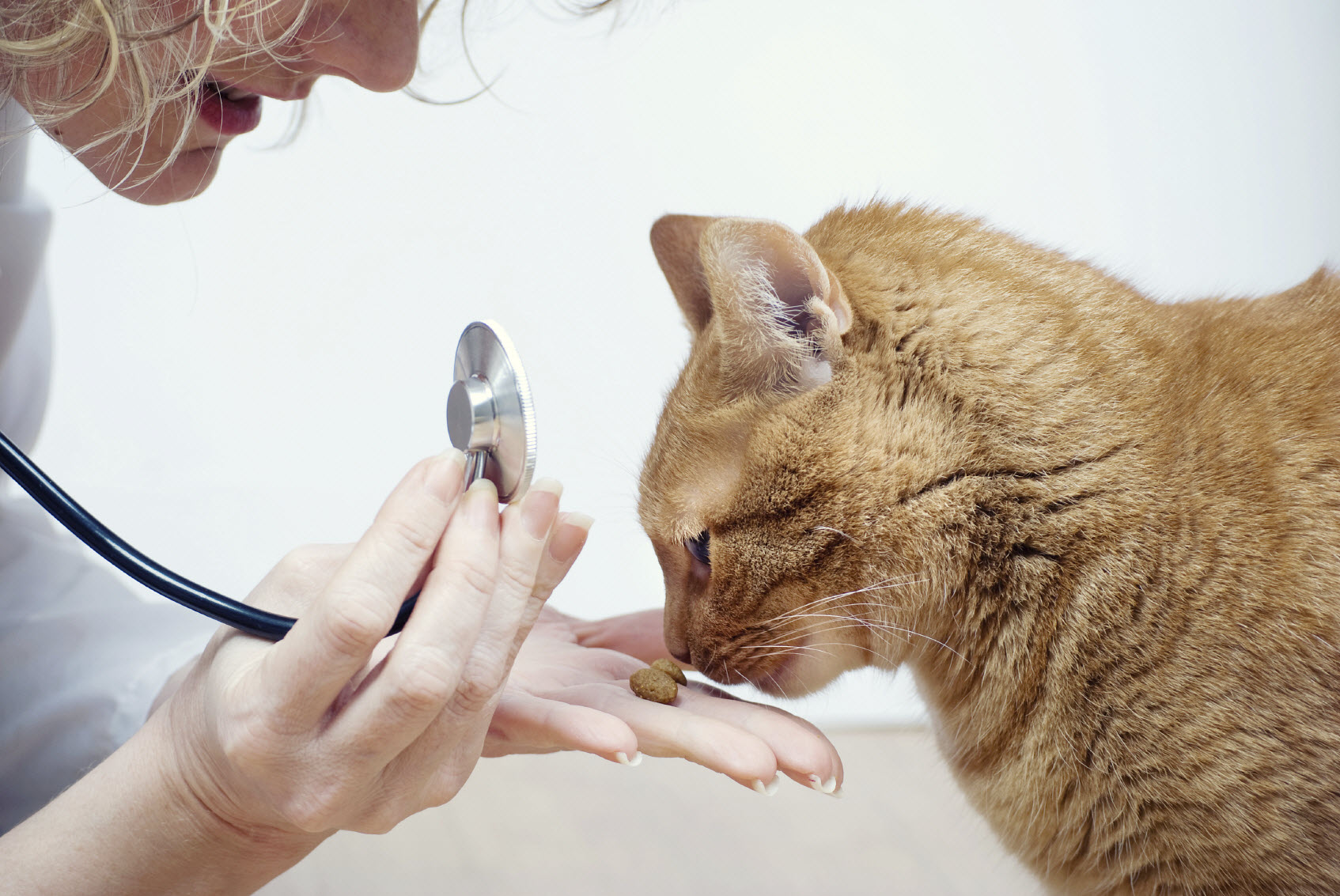
Palpation will determine pain, size, shape, or consistency of the tissues and organs. Sharp taps with the fingers on the abdomen or chest wall will tell your doctor the hollowness or solidness of the body part examined. For example, an area that should sound hollow but sounds solid may indicate a mass that does not belong there. Using stethoscope for auscultation allows the sounds of body functions (heart-beats, and lung and intestinal sounds) to be amplified. A visual inspection of your pet’s gait, posture, hair coat, gum color, and other visible parts is also a feature of a complete physical. An moonscape will be used to look in your pet’s ear canal; an ophthalmoscope will magnify the eye and its inner structure. An examination of your pet’s retina (the back of the inner eye) is part of a thorough physical exam because the presence of certain systemic or local diseases can be discovered by checking the retina.
Certain diseases of the skin, mouth, ears, or internal organs have characteristic odors (for example, a sweet breath may indicate diabetes),so your veterinarian’s sense of smell will also be brought into play. A rectal exam is not a routine part of a cat’s physical.
6. Does your cat veterinarian encourage you to ask questions?
All your questions should be answered in a clear, concise way and in language that you understand – not in medical jargon. Diagrams or simple line drawings are helpful, too.
7. Is your veterinarian gentle with your pet?
Sometimes a little calm talk or a few strokes are all that is needed to make the exam easier.
8. Does your veterinarian have any pets of his or her own?
9. Is your veterinarian careful with a biting or scratching pet?
Your veterinarian should explain that your pet will be gently but firmly restrained so that nobody gets hurt. Most doctors will have a veterinary assistant or use a towel or muzzle.
10. If you are a new pet owner, does the veterinarian give you literature on good health maintenance and training, and does he or she explain it to you?
11. Will your doctor refer you to a veterinary specialist if needed?A good veterinarian knows his or her limitations.
12. Is your veterinarian a member of an emergency group, or is there another doctor on call when your veterinarian is not available?
13. Are all rates and fees explained to you?
If your doctor does not take the initiative, be sure to ask what the fees will be for vaccinations, lab tests, radiographs, surgery. hospitalization,and treatment. Sometimes it is impossible to give you an exact figure,but high and low estimates are feasible, unless your pet’s condition is so unpredictable that the treatment may change. If your pet will be hospitalized for a few days, you could ask your doctor to keep you informed daily of your pet’s accumulated tab. Knowing the daily financial picture,as well as the health picture, can be helpful. Many veterinary hospitals are nearly as well equipped as human hospitals, and the care is also equivalent – sometimes even better! Now there is national pet-care insurance to take the sting out of paying those bills.
14. Does your cat veterinarian use laboratory tests and radiographs (X-rays) discriminate, to confirm a diagnosis?
Your doctor should explain to you in simple language why each test or series of radiographs is being done:
“I’m going to catheterize Ralph – that is, place a sterile tube into the bladder. She’ll be tranquilized, so it won’t be uncomfortable. The urine collected will be checked to see if she has a bladder infection .A culture will be taken to isolate, identify, and count the bacteria.The appropriate antibiotic for killing the bacteria will be deter-mined by exposing the bacteria to various antibiotics in an anti-biotic sensitivity test. I’ll take radiographs of the bladder to rule out bladder stones or bladder tumors.”
15. Does your veterinarian hospitalize only for serious problems?
Many pets’ problems don’t need hospitalization, and, in fact, pets seem to fare better in the home environment. Being treated by their owners,in close cooperation with the veterinarian, is comforting to pets. Most treatment and lab tests can be done on an outpatient basis. Besides,hospitalization can be expensive.
16. Is your cat veterinarian’s hospital well equipped?
This may be difficult for you to evaluate, but up-to-date veterinary hospitals do have modern radiograph equipment, surgical facilities, and laboratories.
If your answers are positive, you have a wonderful veterinarian. If you cannot give a positive answer to most of these questions, or if you are not comfortable with your veterinarian’s diagnosis or treatment, seek another doctor or another opinion.
A happy veterinarian-owner relationship also requires a cooperative, aware.and concerned owner. You can have the best veterinarian in the whole world: but if you do not follow instructions, or do not understand the instructions, your relationship and your pet’s health–can deteriorate rapidly. Because you live intimately with your pet and know its habits and routine, you can often pick up very early and subtle changes that may go unnoticed by your doctor.
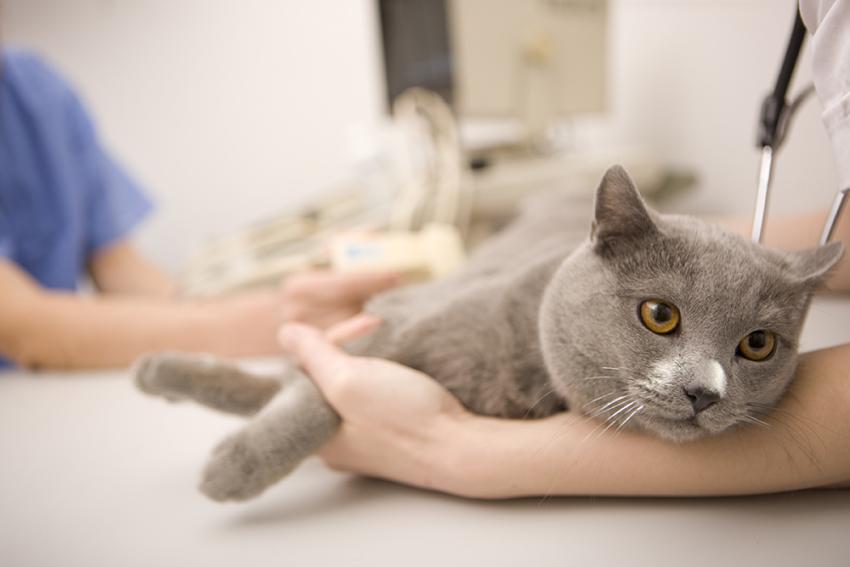
When a visit is necessary, bring paper and pen and write down (or have your veterinarian write down) all important instructions. Trying to remember every-thing is usually a waste of your time and money and may cause your pet’s medical problem to persist, return, or get worse. In many cases, this situation leads to the denouncement, “That vet is no good!” If you have questions about a medication(why it was prescribed, what side effects it has, how long it should be given, etc.)or about a treatment or surgical procedure (why it is important, how it may help.what limitations it has, etc.), ask your veterinarian to make the information understandable. Lack of communication not poor professional care is the most frequent problem in the veterinarian-owner relationship.
For example, do not “double-up” on the medication at night if you were too rushed in the morning to give your cat its medicine. Excess doses can be worse than none at all. Let your doctor demonstrate the best method for administering the medicine if you feel that you will have problems. And do not stop the medication just because Ralph seems better. Follow your doctor’s instructions. Stopping medication too early can cause an even more serious problem. If your pet experiences side effects from the medication, phone your veterinarian. A change in dos-age or in the interval between doses or a new drug altogether may be recommended. If your doctor wants a follow up exam, follow up!
